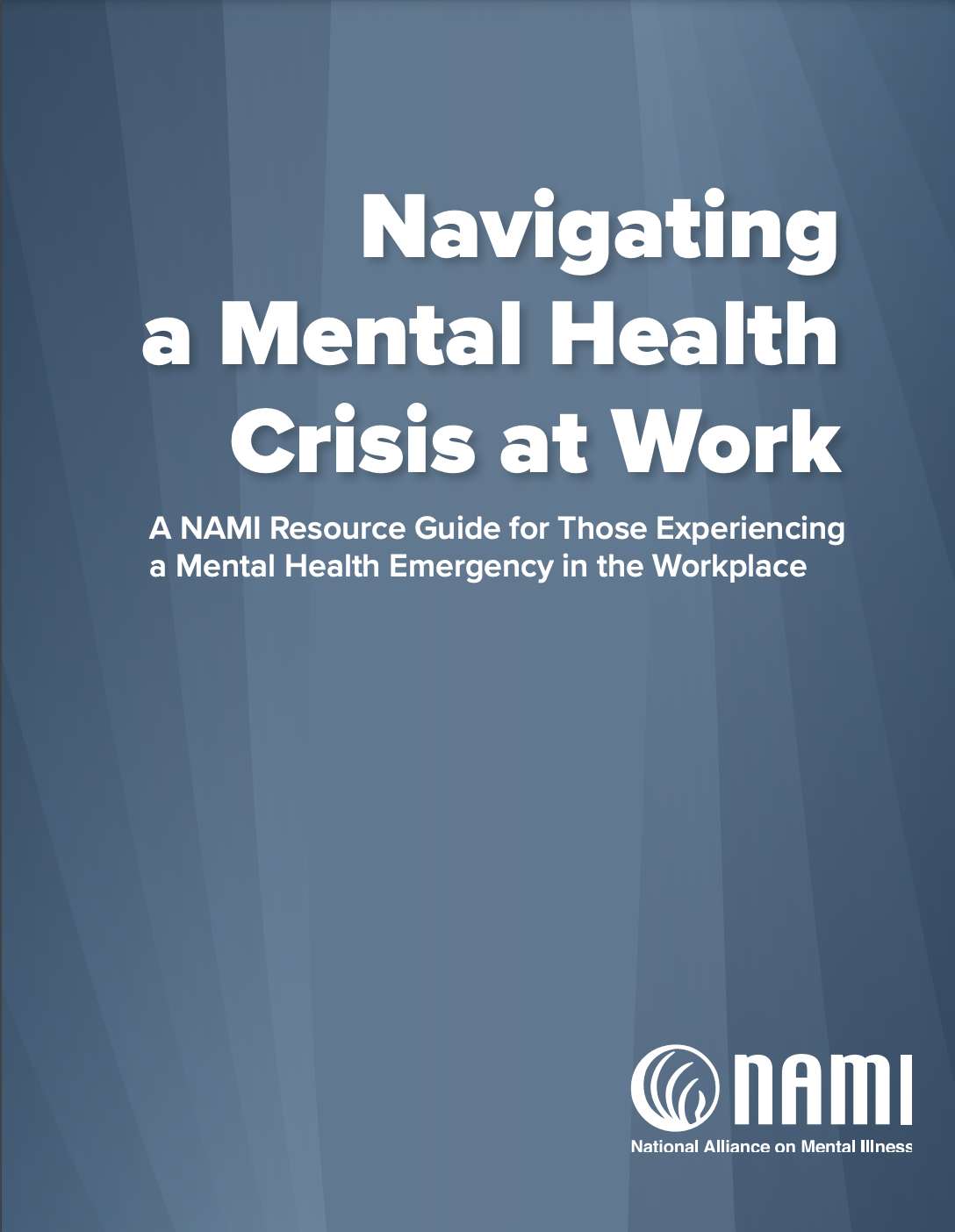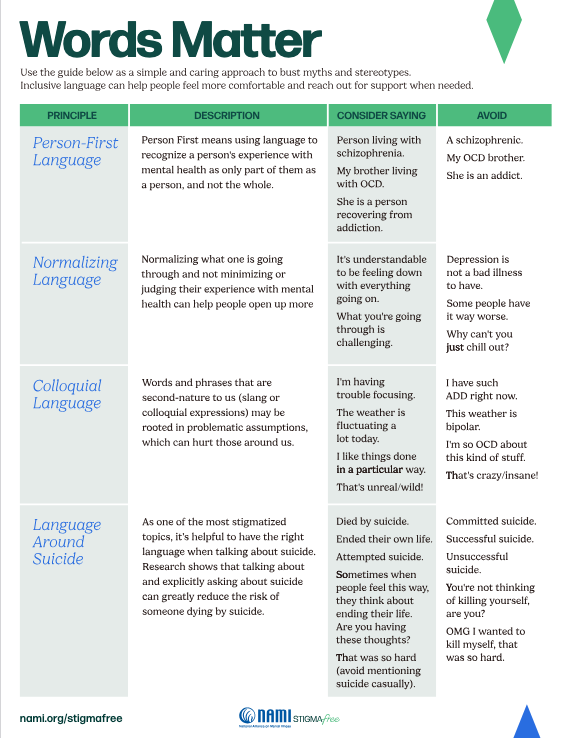3.6% of U.S. adults experienced posttraumatic stress disorder (PTSD) in the past year. Learn about PTSD and ways to support an employee working with PTSD.
What is PTSD?
Posttraumatic stress disorder (PTSD) is a mental health condition that can be diagnosed and treated. People often feel stressed after a traumatic event, like an accident, an attack, or a natural disaster, but PTSD is often diagnosed when these feelings last for more than a month and significantly impair daily functioning.
Sometimes, people can also experience lasting effects when they hear about or see another person go through a traumatic experience. This is called secondary trauma.
Developing PTSD is not a sign of weakness or failure. It’s a health condition just like any other.
How PTSD Can Impact an Employee’s Work Day
Many people who live with PTSD do quite well at work and are productive team members. Learning to manage PTSD can help people develop or enhance important skills, such as:
- Flexible thinking
- Relational skills
- Renewed sense of meaning or purpose
- Leadership abilities such as courage and resilience
PTSD in the workplace can also be challenging and impact work in these ways:
- Energy levels
- Focus and concentration
- Social interactions
- Decision-making
- Stress management
Some days may be harder than others. People with PTSD can still have successful careers, especially in a supportive workplace.
5 Ways to Support an Employee Who Has PTSD
Remember: Do not attempt to diagnose or treat mental health conditions. You are not a mental health provider, and you’re never expected to be one.
You can support your team by connecting them to resources and creating a trusting culture. Here are five easy ways to support team members:
- Listen to employee needs. The employee has the best understanding of their own experiences and limitations. Instead of jumping in with solutions, ask, “How can I help you do your best work?” If the employee doesn’t know or requests your help, work together to identify some possible accommodations to try.
- Evaluate the work environment. Small changes like seating location, control over lighting, or noise-canceling headphones can help with environmental triggers. If possible, offer flexible working hours or locations.
- Establish routines and protocols. Having a set calendar appointment or scheduled reminders for regular occurrences, like check-in meetings or routine tasks, can help with memory and reduce uncertainty. Consider whether options like providing written instructions for tasks or allowing additional time for training would be helpful.
- Provide training to reduce stigma. Nearly half of employees fear they will be judged by their colleagues for their mental health concerns. This is concerning because stigma leads to more employees suffering in silence and delaying recovery. Providing required training on the impact of mental health stigma and how to appropriately respond to mental health concerns from their colleagues may help.
- Familiarize yourself with company benefits. 1 in 4 employees do not know whether they have mental health benefits, and this number is higher among entry-level employees. Therefore, you should know what resources are available for employees that report to you and have the information ready.
More Resources for Understanding PTSD
You may wish to consult NAMI’s posttraumatic stress disorder page, where you will find information on the condition, current treatments, and ways to support recovery.
In addition, the following resources may be helpful:
- Read articles on the NAMI Blog about experiences with PTSD. (How EMDR Healed My Trauma)
- NAMI TraumaInSight is a free, virtual training by NAMI to enhance trauma awareness when working with youth. Lessons 6 and 7 can help anyone trying to learn more about trauma-informed workplaces and secondary trauma.
- America’s VetDogs provides no-cost PTSD service dogs to veterans, active-duty service members, or first responders who are living with disability caused by PTSD. Reach them by phone at (866) 838-3647.
- The Eye Movement Desensitization and Reprocessing International Association website EMDR International Association offers a “Find an EMDR Therapist” locator to find clinicians trained in the use of Eye Movement Desensitization and Reprocessing (EMDR) therapy, a psychotherapy treatment that helps people recover from trauma and other distressing life experiences, including PTSD.
- Int’l Society for the Study of Trauma and Dissociation provides facts sheets, webinars, and other resources on trauma and dissociation, as well as a Find a Therapist/Facility locator. Reach them by phone at (202) 803-6332.
- The JED Foundation protects emotional health and prevents suicide for adolescents and young adults; the organization’s website offers a webpage on “How to Cope with Traumatic Events,” including tips on coping and recognizing when trauma requires professional help.
- Traumatic Stress Institute is an international organization that helps people understand, recover from, and treat traumatic stress (including PTSD), dissociative disorders, and co–occurring conditions such as addiction, self-injury, and suicidality. Their website provides educational information, resources for treatment, support, and self-help, as well as publications about trauma and recovery.
- The US Department of Veterans Affairs’ National Center for PTSD website provides resources for individuals, family members and providers about combat- and non-combat-related PTSD, including information on understanding PTSD, treatment options, self-help resources, and finding support as a family member. Their website offers resources for finding a treatment provider. Their “Helping a Family Member Who Has PTSD” webpage is also available in Spanish.
- TF-CBT National Therapist Certification Program offers a “Find a Therapist” locator on its website to find a clinician in Trauma-Focused Cognitive Behavioral Therapy (TF-CBT) treatment for people impacted by trauma; search by location, name and other criteria.
- PTSD Coach Online is for anyone who needs help with upsetting feelings. Trauma survivors, their families, or anyone coping with stress can benefit.


